- Learning time
- 120 minutes
- First play time
- 240 minutes
Maracaibo
Designed by: Alexander Pfister
In Maracaibo, you play merchant traders and wily mercenaries of the Caribbean in colonial times. You’re not the expansionist empires themselves, but have a vested interest in who controls what, and a growing capacity to change the political landscape on the board.
We can’t possibly break down the rules to Maracaibo here, but as a brief overview: the board shows the region, and the players sail their ships around it, following a clockwise route. On your turn you can move up to seven spaces, stopping at either a village if it is empty, or potentially sharing space at a city. Having stopped, you can now take actions: three basic ones at a village or any number you can afford at a city.
So – actions. As well as the shared board you’ve also your own small board representing your ship, dotted with tokens. If you can removes these tokens, you trigger various upgrades to your ship and/or your abilities in the game. You’ve also a hand of cards. The cards do various things, one of which is represent goods. If you arrive at a city where that good is in demand – it’s shown on the board – you can pay such a card to make improvements on your ship, removing one of those pesky tokens and placing it in the city to show you’ve met the demand for, say, sugar – now the other players are deprived of this opportunity!
Another main action is playing a card from your hand to the table, representing either your crew, influential friends, or even buildings. Playing a card costs money, however, and needless to say the more powerful cards are more expensive. Once played, they generate more power in various ways: more money, more points, assistants waiting for you at particular locations on the board to make an otherwise procedural village action (usually focused on the hand management of discarding/getting new cards or a trickle of money) more productive, as your assistant offers you and you only extra actions when you pause there.
The other action which is worth covering in a little more detail is combat.
If you engage in combat you flip over a combat tile and choose which empire (France, Spain or England) you’re going to fight with. Doing so has two direct impacts on the game. Firstly, a cube representing the empire in question (blue, red or white) is placed on the map to show they are now in control. Secondly, your own influence with that empire increases: influence is tracked on the board itself, and is absolutely key to your success in the game: after all players have sailed around the board four times (-stopping at Havana at the end of each round for income of points and cash) the players will score points according their influence with each of the three empires, and how much they score depends on the state of the empire itself. What this means in practice is a game that begins with a relatively sedate sailing/gathering/improving ambience will disintegrate into a rather more dastardly affair, as your best efforts to keep Spain in control, say, are undermined by others pushing for France.
After the final round there’s a last opportunity to ‘build’ cards to your tableau, then the player with the most points is crowned winner. There is far more going on than we’ve mentioned here, including an explorer track you can trek for extra stuff, synergy tokens that combine with certain cards on your tableau, the various extra actions you can get from your ship and not least the option, should you desire it, to include the legacy tiles, which give you a kind of campaign to play through where story elements that are triggered in one game stay consistent to the next. But this is the gist, in as much as any game like Maracaibo can have one…
The guru's verdict
-
Take That!
Take That!
Certainly present. Although players don't attack each other, the jostling for military control amongst the powers amounts to the same thing.
-
Fidget Factor!
Fidget Factor!
Reasonably high, dropping swiftly. Although some turns for some players can be lengthy - the various city actions - many others will be swift, if you're without cash and are purely focused on filling the coffers.
-
Brain Burn!
Brain Burn!
The heart of Maracaibo is straightforward: travel the region following a strict route. Gather cash to play cards. Do as much as you can to further the empires you've decided to align with, temporarily or otherwise. Maybe with a sideline in hampering other's plans: speeding ahead to take the trade action, blocking the village where someone else has an assistant. But there's a fair amount of rules here, and the iconography when first encountered seems like a mythical language - so, not for the faint-hearted.
-
Again Again!
Again Again!
For all Maracaibo's heavy lifting of rules, you certainly can't say it's predictable. Even without the legacy aspect, there is plenty going on here, with enough information out on the table for a proper ding-dong battle, yet enough hidden (the cards in everyone's hand) to spring the odd surprise.

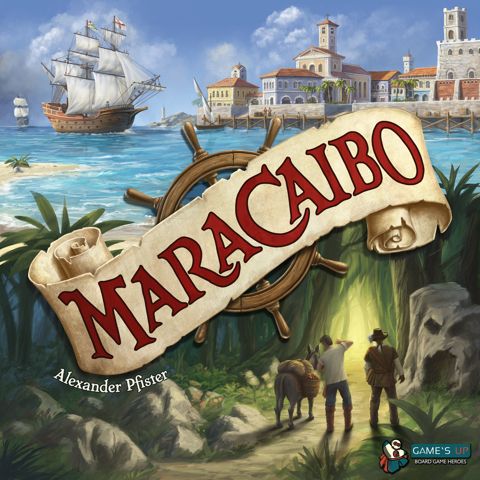

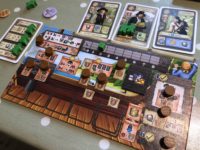
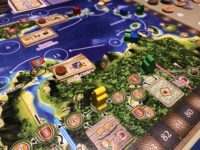
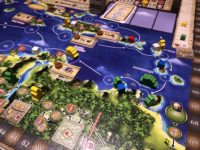
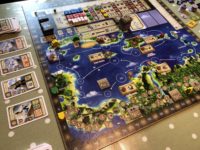


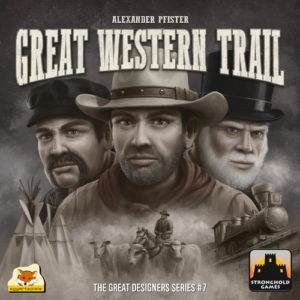
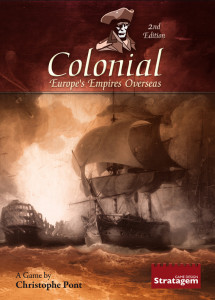
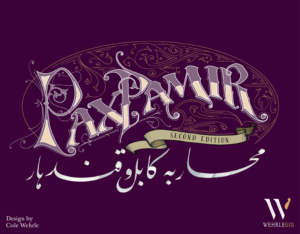

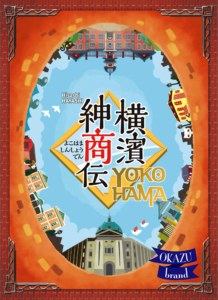
Sam says
Personally, I wish Maracaibo had been set elsewhere (maybe the future) rather than yet-another game that requires you to further the conquests of the monied, military Europeans against the unsuspecting and ultimately downtrodden populace of smaller, non-Christian countries. True, in Maracaibo you're not the empires themselves, but as mercenary opportunists seeking favour, the moral ground is grey enough to be charcoal. The game itself: well, designer Alexander Pfister is a genius at making all these interconnecting mechanisms join together, and as a design it is - once you comprehend it - kind of spectacular. That scoring system is brilliant, the passive-aggressive push for control, the balance of how far to travel (because every place you pass is potentially depriving you of actions for that round) and the narrative of the cards representing how you invest your ill-gotten gains to further your career, rather than stuffing it all under a straw mattress. For me, that's kind of enough. I don't need synergy tokens and explorer tracks or additional assistants triggered when X or planning areas or legacy tiles... but then, that's me. There are few games I want to play over and over consecutively, as I rather like hopping around from thing to thing. For those who really love to get their teeth into repeat visits, and get a kick out of this kind of complexity, you can add an extra star to our rating. Maybe two. That theme though...